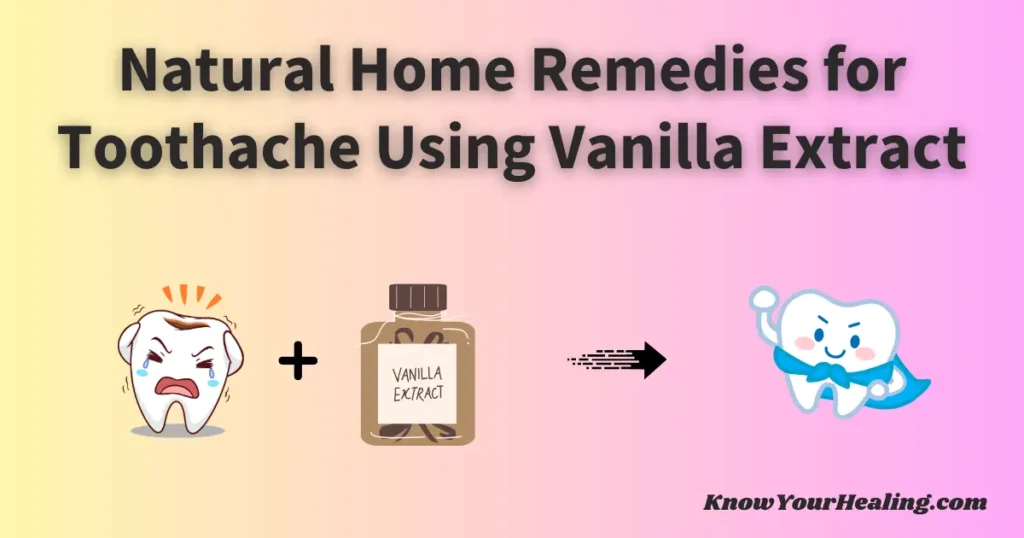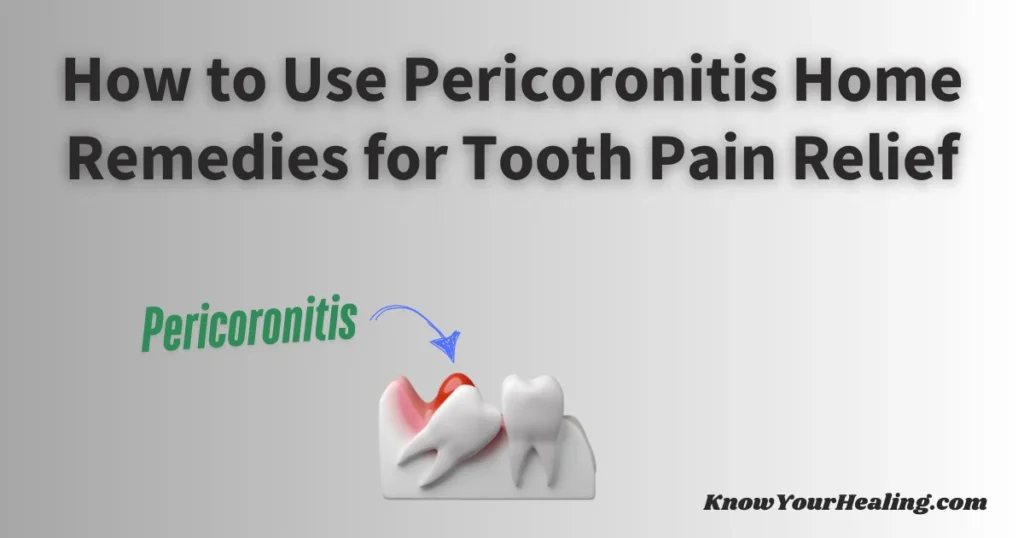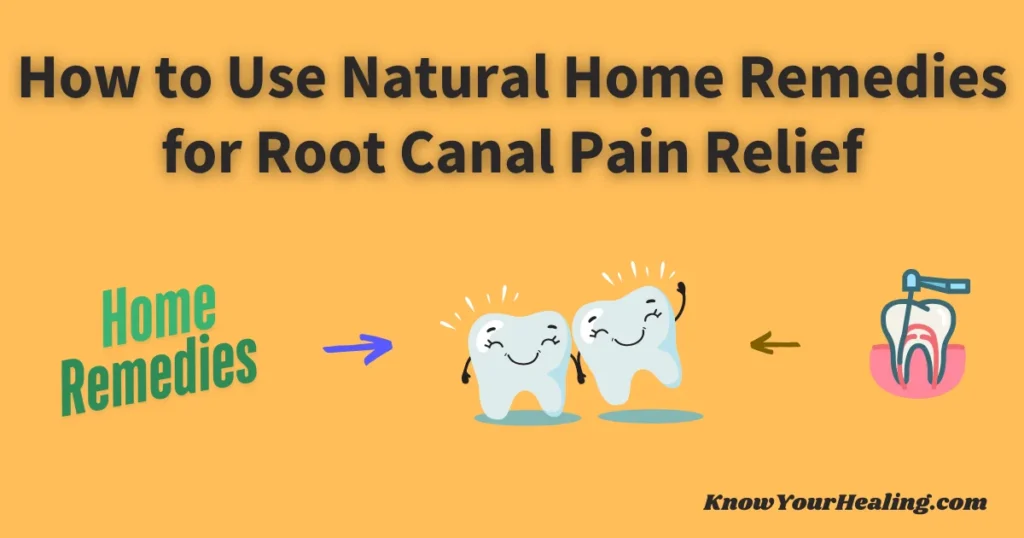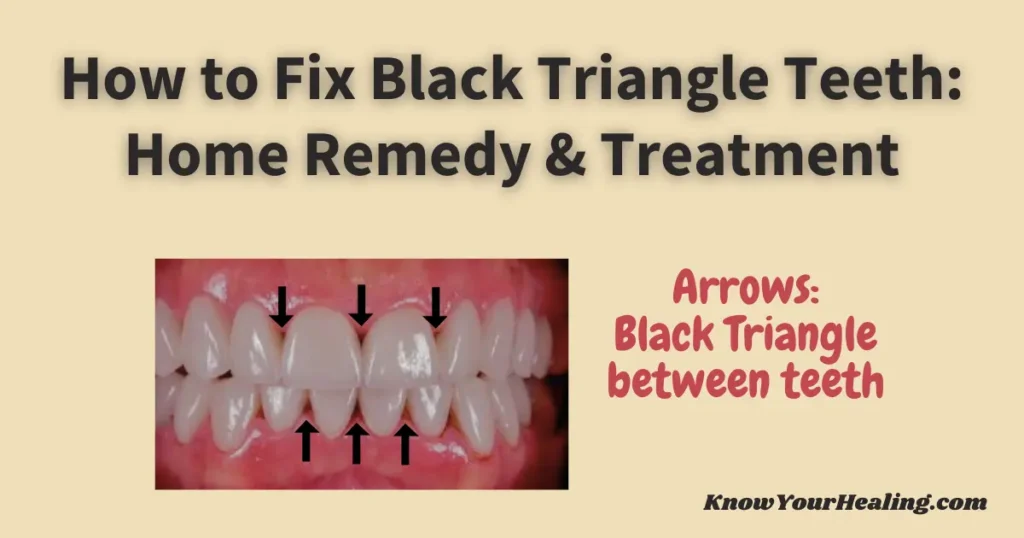Home remedies for toothache, such as vanilla extract, can be soothing and accessible solutions for those experiencing dental discomfort.
Toothaches are often unexpected and bring discomfort that can disrupt your daily activities.
Vanilla extract, known for its alcohol content, can numb toothache pain, while its antioxidants may support healing.
Vanilla extract provides an easy and inexpensive option for anyone looking for relief without a trip to the dentist.
Many people might be surprised that something usually reserved for baking could help alleviate tooth pain.
A few drops of a cotton ball placed on the affected area may provide temporary relief, comforting those in distress.
Understanding Toothache and Its Causes
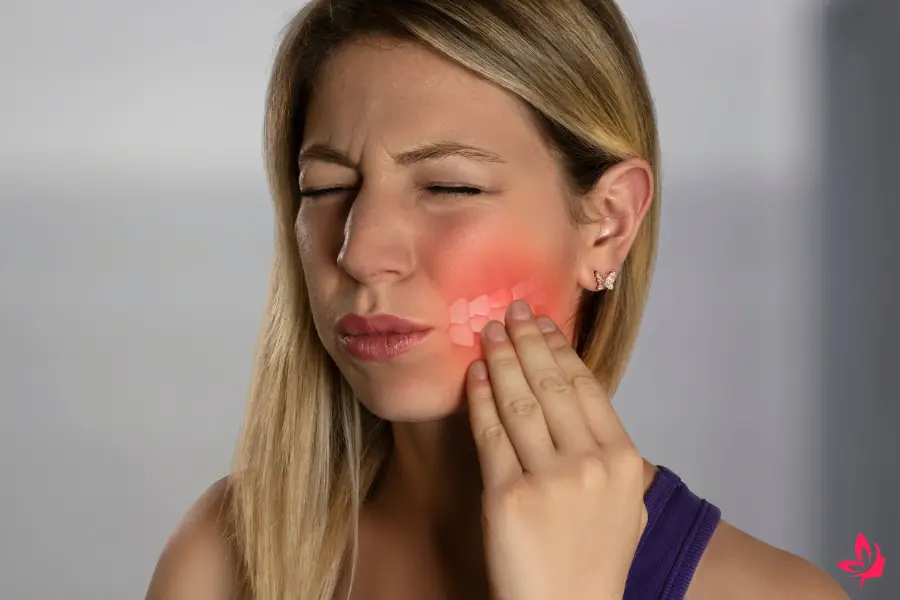
Toothaches can be painful and often caused by underlying issues such as cavities or infections.
Recognizing the cause helps find the best way to address the pain and pursue appropriate dental care.
What Causes Toothache?
Toothaches are primarily the result of inflammation within the tooth pulp. This pulp contains nerves and blood vessels that can become irritated by tooth decay, gum disease, or a cracked tooth.
Hard particles like food debris can lead to bacterial buildup, furthering the risk of cavities, while deep infections may affect the dental pulp.
External factors like extreme temperatures or pressure from clenching can also lead to pain.
A temporary toothache can often be eased through home remedies such as a cold compress or saltwater rinse.
These remedies may provide short-term relief by reducing inflammation and numbing the painful area. However, understanding and addressing the underlying cause of your toothache is crucial for lasting relief.
Identifying the Affected Tooth
Locating the affected tooth is essential for effective treatment.
People often feel the pain spreading across the jaw, but identifying the exact source can be complex.
Some discover it by gently tapping each tooth to find the most sensitive one. Swelling around the gum line can also indicate the infected area.
Temporary relief measures may involve using a cotton ball soaked in a few drops of vanilla extract, known for its soothing properties.
Peppermint tea bags or a drop of clove oil on the sore tooth can also be natural pain relievers.
Proper identification of the affected tooth ensures that dental professionals can address the issue effectively, enhancing oral health and leading to effective toothache relief.
Benefits of Vanilla Extract for Toothache Relief
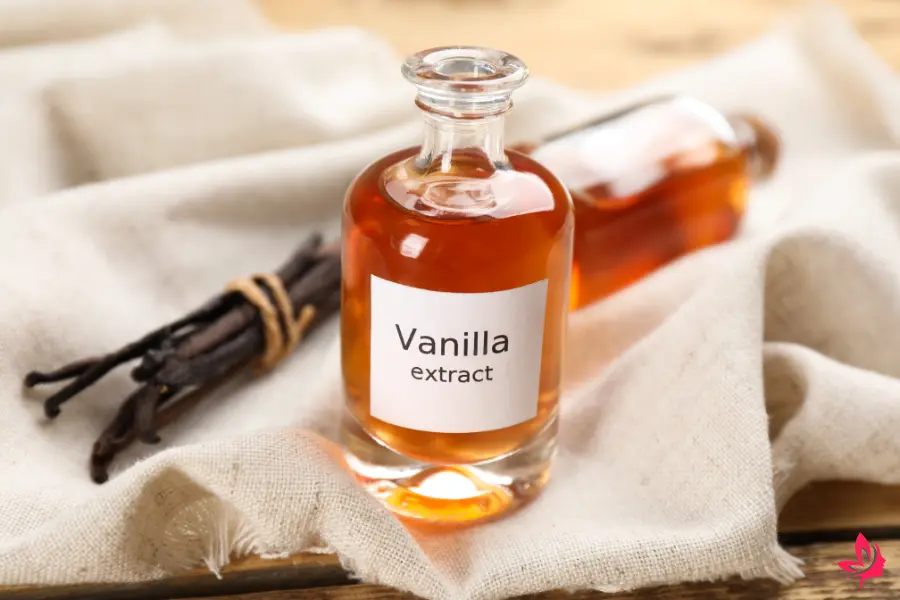
Vanilla extract offers potential relief for toothache pain using its antiseptic and pain-relieving qualities. It can provide temporary relief and is commonly applied with a cotton ball to the affected area.
Antibacterial and Antiseptic Properties
Vanilla extract is known for its antibacterial and antiseptic properties, which can help reduce harmful bacteria in the mouth.
These properties make it a proper home remedy for managing mild toothache pain, as they may help prevent the growth of dental plaque and reduce the risk of infection.
Applying a small amount of vanilla extract on a cotton ball directly onto the affected area allows these properties to target the source of discomfort.
While not a substitute for professional dental care, using vanilla extract alongside natural remedies such as a saltwater rinse can improve oral health by addressing food particles and other irritants that may exacerbate toothache pain.
How Vanilla Extract Acts as a Natural Pain Reliever
The pain-relieving effects of vanilla extract come from the alcohol content, which can act as a natural anesthetic.
When applied to a painful area, the vanilla extract helps numb toothache pain, offering rapid, albeit short-term, relief.
The extract also contains antioxidant properties that may help reduce inflammation, soothing the aching tooth.
Though its effect is temporary, using vanilla extract with other at-home remedies, such as a cold compress or an ice pack, can enhance its effectiveness.
How to Use Vanilla Extract for Toothache
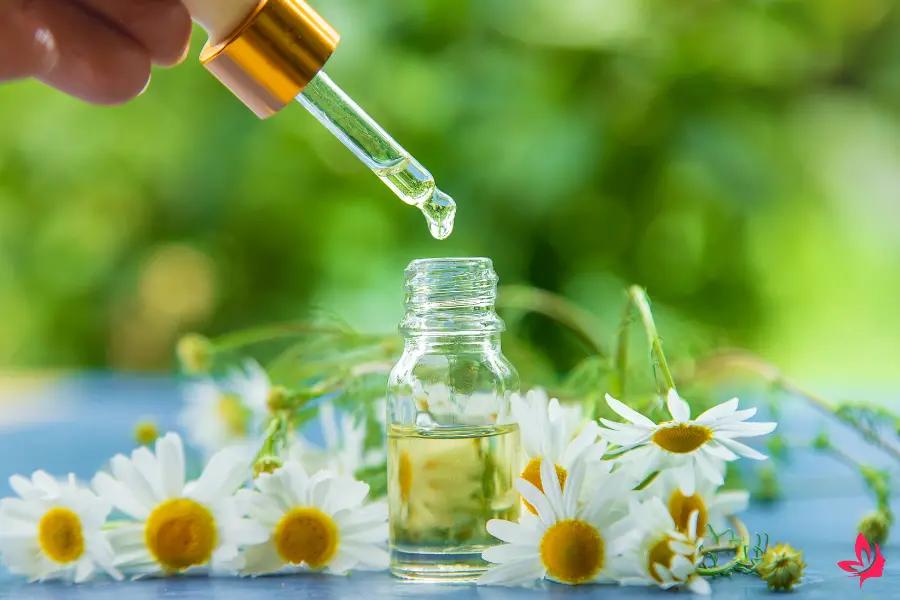
Vanilla extract can temporarily relieve toothache pain due to its alcohol content, which acts as a natural anesthetic. It can be applied directly to the affected area using a cotton ball or mixed with other ingredients for enhanced effectiveness.
Applying Vanilla Extract with a Cotton Ball
To use vanilla extract to ease toothache pain, place a few drops of real vanilla extract on a cotton ball.
Avoid imitation vanilla, as it lacks the medicinal properties of genuine vanilla extract.
Apply the soaked cotton ball gently to the painful area.
This method allows the extract to numb the affected tooth quickly by numbing the nerves and reducing discomfort. For best results, repeat this process a few times a day.
While this method offers temporary pain relief, it should not replace a visit to the dentist for severe toothache or dental problems, as it may only provide short-term relief.
Mixing Vanilla Extract with Other Ingredients for Enhanced Relief
Vanilla extract can be combined with other natural remedies for improved toothache relief.
One option is to mix it with a few drops of clove oil, known for its natural antiseptic and pain-relieving properties.
Apply this mixture to the painful area for extra effectiveness.
Another method involves adding vanilla extract to a saltwater rinse.
Combine a small amount of vanilla extract with a teaspoon of salt dissolved in warm water.
Use this mixture as a mouth rinse to clean and soothe the mouth, reducing tooth decay or gum disease irritation.
Consistently using these approaches might help alleviate discomfort while waiting for dental care.
Other Effective Home Remedies for Toothache

Home remedies for toothache extend beyond vanilla extract. These solutions offer natural ways to ease pain and reduce discomfort caused by dental issues.
Two effective methods include using a saltwater rinse for short-term relief and harnessing the medicinal properties of garlic cloves.
Saltwater Rinse for Temporary Relief
A saltwater rinse is one of the most straightforward ways to relieve toothache pain temporarily.
By mixing a teaspoon of salt with a cup of warm water, individuals can create a natural antiseptic that reduces inflammation and cleans the affected area.
Swishing this solution around the mouth helps dislodge food particles and dental plaque, preventing the growth of harmful bacteria that could exacerbate the toothache.
This method is particularly effective for those with mild tooth decay or gum disease.
For best results, it is recommended to use the saltwater rinse several times a day.
This routine can soothe sensitive teeth and prevent further irritation in the affected tooth without the side effects associated with over-the-counter remedies.
The Power of Garlic Clove and Its Medicinal Properties
Garlic clove is renowned for its antibacterial properties and ability to relieve toothache.
As a natural remedy, garlic can combat the bacteria in the mouth that cause dental pain.
Crushing a clove of fresh garlic releases its potent medicinal properties.
Applying this garlic paste directly onto the sore tooth can provide relief by acting as a natural disinfectant. Some people prefer to mix the garlic with a carrier oil, like olive oil, for a more straightforward application.
Alternatively, gently biting down a piece of garlic on the affected area can release its natural pain reliever compounds. This simple method harnesses garlic’s power, making it an indispensable part of at-home remedies for dental care.
Pain Relief Using Essential Oils
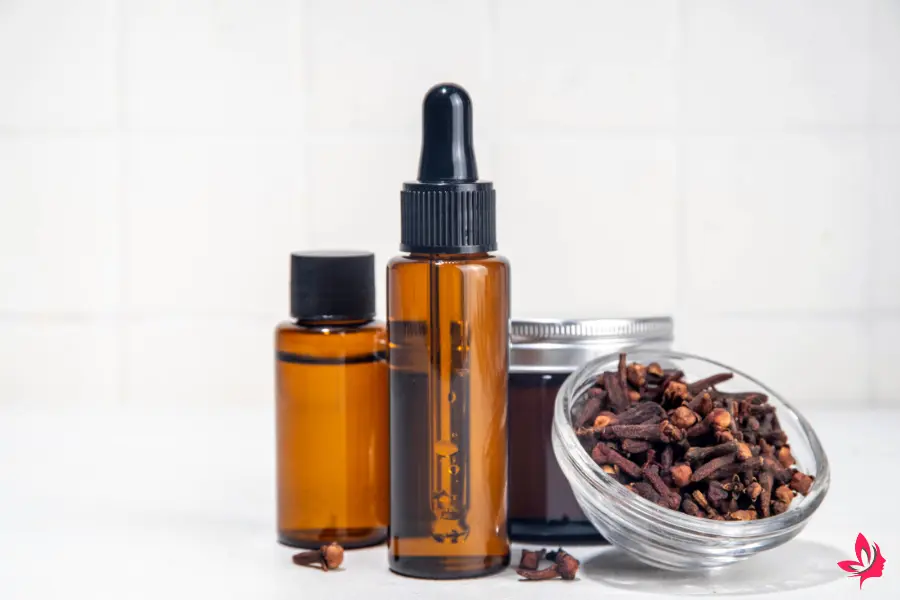
Exploring essential oils for toothache relief can offer temporary comfort from dental pain. Clove oil and peppermint oil, noted for their natural anesthetic and antibacterial properties, are two practical options for managing aching tooth discomfort.
Clove Oil
Clove oil is a highly recommended home remedy for toothache relief because of its potent medicinal properties.
This essential oil contains eugenol, a natural anesthetic and antibacterial agent that helps numb the painful area.
To use clove oil, it is best to dilute a few drops with a carrier oil, such as olive oil. Then, using a cotton ball, apply the mixture to the affected tooth or gum.
This method targets the source of pain and provides temporary relief by reducing inflammation and killing harmful bacteria.
For many, clove oil can quickly relieve toothaches, making it a valuable addition to at-home remedies.
It’s crucial to use only a tiny amount to avoid irritation. Pairing this remedy with a saltwater rinse to wash away food particles and further cleanse the mouth is also helpful.
Details on using clove oil can be found in resources like Healthline’s guide on home remedies for toothache.
Peppermint Oil
Peppermint oil is another effective natural pain reliever due to its cooling sensation and antibacterial properties.
This essential oil helps reduce inflammation and numbs the discomfort associated with a sore tooth.
Mix peppermint oil with a carrier oil and gently rub it onto the sensitive teeth using a cotton swab.
Peppermint oil has the added benefit of antimicrobial properties, which help fight off teeth-related issues like dental plaque.
While peppermint oil offers short-term relief, it is important to remember that the underlying cause of toothache should be addressed with a dental professional for long-term oral health.
At Colgate’s expert advice page, Colgate provides valuable insights on peppermint oil and other remedies for further exploration.
Hygiene-Based Remedies

Proper dental hygiene can play a crucial role in alleviating toothache pain and maintaining oral health. This section discusses two effective at-home remedies involving hydrogen peroxide and mouthwash.
Hydrogen Peroxide Rinse
Using a hydrogen peroxide rinse is an effective method for toothache relief.
It acts as a natural disinfectant, helping to remove food particles and reduce dental plaque.
A 3% hydrogen peroxide solution can be used. Mix equal parts water and hydrogen peroxide in a glass of warm water.
Swish the mixture around the mouth for a minute, then spit it out.
This rinse can temporarily relieve pain and may also help reduce inflammation caused by harmful bacteria.
It’s important to avoid swallowing the solution. This method should not be used frequently to prevent irritation to the mouth’s delicate tissues.
Mouthwash Use for Toothaches
Mouthwash can also help relieve tooth pain. Some mouthwashes have antiseptic properties that can help combat tooth decay and gum disease.
Choose a mouthwash designed to fight bacteria and reduce inflammation for the best results. This can help address the source of the toothache.
Swish mouthwash around the mouth for about 30 seconds, focusing on the affected tooth or area. This may provide temporary pain relief.
Be sure to use mouthwash consistently as part of regular dental care to prevent issues that lead to tooth pain.
By incorporating these hygiene-based practices, individuals might find short-term relief from dental discomfort while supporting better oral health.
Cold Therapy for Swelling and Pain

Cold therapy is an effective approach to managing swelling and pain in toothaches. An ice pack or cold compress can help numb the aching tooth and reduce inflammation by constricting blood vessels.
Proper application is essential for temporary relief and minimizing discomfort.
Ice Pack Application
An ice pack on the affected area provides temporary relief by numbing the painful area and reducing inflammation.
Wrap the ice pack in a thin cloth to protect the skin from direct contact with the ice, which can cause damage.
Hold the pack against the outside of the mouth, near the painful tooth, for about 15 to 20 minutes at a time. This method is believed to help calm toothache pain and lower swelling.
Alternating the ice pack every 15 minutes can also be beneficial. This gives the skin time to warm up before applying again, ensuring better comfort.
Doing this several times daily can assist in pain management and oral health maintenance.
Cold Compress Technique
A cold compress can be made with a clean cloth and ice cubes. Wrap the ice cubes in the fabric, ensuring none are on your skin.
Press the compress gently against the side of your face near the sore tooth. Use gentle pressure not to aggravate any existing dental issues.
Cold compresses can be effective in providing short-term relief. This method can temporarily ease discomfort by numbing pain signals from the tooth to the brain.
Regular cold therapy, in conjunction with other home remedies like saltwater rinse or peppermint tea bags, can further improve dental care and address symptoms of conditions like sensitive teeth.
Tips for Maintaining Oral Health and Preventing Toothaches
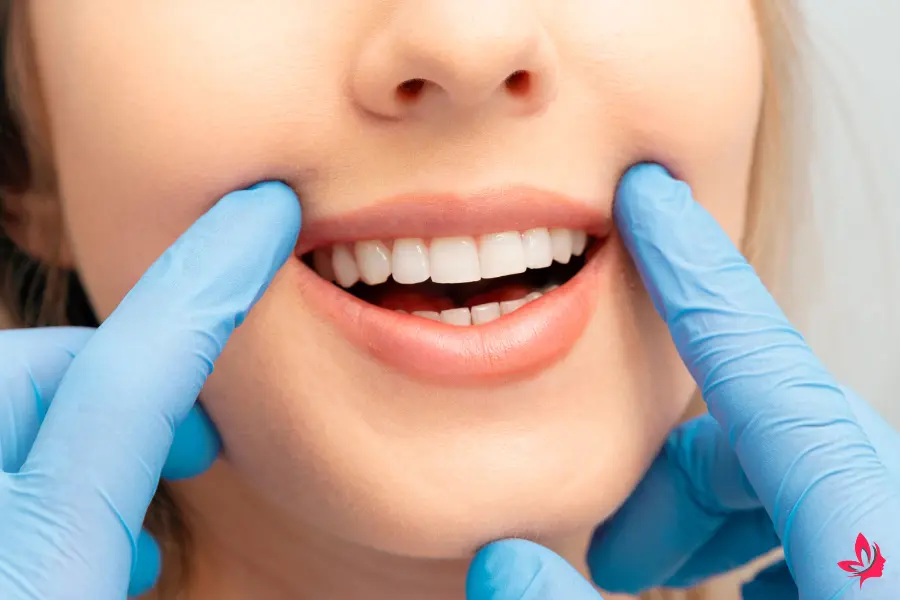
Maintaining oral health requires consistent routines and attention to detail. Ensuring regular dental care and natural remedies can effectively prevent toothaches and support oral health.
Importance of Regular Dental Care
Regular dental care encompasses several crucial practices that contribute to optimal oral health.
Brushing teeth twice daily with fluoride toothpaste helps remove dental plaque and food particles that accumulate over time.
Flossing daily is also essential to target areas that a toothbrush cannot reach, reducing the risk of gum disease and tooth decay.
Another key component is scheduling visits to the dentist every six months. These appointments allow professionals to detect issues such as cavities or periodontal disease early.
Professional cleanings ensure that tartar buildup is adequately addressed, preventing potential toothache pain.
Additionally, dentists can offer tailored advice to manage discomfort for those with sensitive teeth.
Natural Remedies to Combat Tooth Decay and Gum Disease
Incorporating natural remedies can offer tooth pain relief and combat tooth decay effectively.
A saltwater rinse, using a teaspoon of salt in a cup of warm water, can act as a natural disinfectant and soothe the affected tooth.
Similarly, peppermint tea bags can harness the natural anesthetic properties of peppermint, offering temporary relief.
Garlic clove is another remedy with antibacterial properties that can be applied to the affected area to help reduce pain signals.
Drops of vanilla extract applied with a cotton swab can temporarily numb the painful area.
Combined with regular professional care, these at-home remedies can form a comprehensive approach to maintaining oral health and preventing common dental problems.
Final Thoughts
Vanilla extract is a frequently highlighted home remedy for toothaches, praised for its numbing properties.
The alcohol in vanilla can temporarily ease discomfort, making it a popular choice for those seeking quick relief.
A common method involves applying vanilla extract directly to the affected area with a cotton ball or fingertip. This approach takes advantage of the extract’s soothing characteristics, giving brief respite from tooth pain.
It’s important to note that while vanilla extract can provide temporary relief, it is not a substitute for professional dental care. Frequent toothaches may signify underlying issues requiring expert attention.
Key Takeaways:
- Vanilla extract is convenient for quick, temporary relief from tooth pain.
- It is advisable to use real vanilla extract for its potential soothing effects.
- This remedy should not replace consultation with a dentist for persistent issues.
Vanilla extract offers a temporary solution for toothache discomfort but should be paired with medical advice for long-term care.
Frequently Asked Questions
Vanilla extract can temporarily remedy toothache due to its alcohol content, which may help numb the pain.
Does vanilla extract take away tooth pain?
Vanilla extract, because of its alcohol content, can temporarily numb tooth pain. Although it may not provide a permanent solution, applying it directly to the affected area can offer quick relief for some people.
How to stop a toothache asap at home?
Several methods can help relieve a toothache quickly at home, such as over-the-counter pain relievers, applying a cold compress, or using vanilla extract. Good oral hygiene is also essential to prevent further issues.
Is vanilla extract good for tooth extraction?
While vanilla extract can temporarily relieve pain, it’s not explicitly recommended after a tooth extraction. It’s best to follow the care instructions provided by a dentist and use prescribed medications for pain management.
Can you put vanilla extract on your gums?
Due to its alcohol content, applying vanilla extract directly to your gums can help numb some of the pain. However, using genuine vanilla extract is crucial to achieve the best results.
How do you put a vanilla extract on a tooth?
Soak a cotton ball with the extract and gently place it on the affected tooth to apply vanilla extract. This method can provide quick but temporary relief as the alcohol content numbs the area.
How do you stop nerve pain in your tooth asap?
Stopping nerve pain in a tooth quickly may require over-the-counter painkillers and home remedies like applying vanilla extract. If the pain persists, seeing a dentist is recommended.
What draws out tooth pain?
Applying cold packs, over-the-counter pain medication, or home remedies like vanilla extract may help alleviate tooth pain. Temporary relief methods should be accompanied by a visit to the dentist for a lasting solution.
Is vanilla extract a numbing agent?
Due to its alcohol content, vanilla extract acts as a numbing agent, temporarily relieving tooth pain. However, the effect is not long-lasting, so frequent reapplication might be necessary.
How can I sleep with unbearable tooth pain?
Try over-the-counter pain medications or home remedies like vanilla extract to manage tooth pain while sleeping. Elevating your head with pillows and avoiding eating or drinking right before bed can also reduce discomfort.
Is vanilla essence the same as vanilla extract?
No, vanilla essence is not the same as vanilla extract.
Vanilla extract is made using real vanilla beans and contains alcohol. On the other hand, vanilla essence is often synthetic and lacks the beneficial properties of genuine extract.

